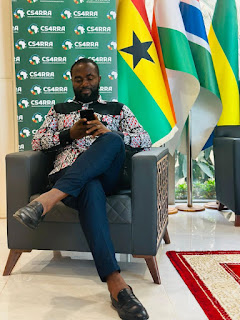SHAPING AFRICA’S CLIMATE NARRATIVE THROUGH STRATEGIC COMMUNICATION

While
scientific discoveries play a crucial role in shaping policies and
interventions, their impact is significantly diminished if they are not
effectively communicated to governments, industries, communities, and the
general public. Climate change, in particular, demands a well-coordinated
communication approach that bridges the gap between research and real-world
action.
Africa
is at the frontline of the climate crisis, experiencing rising temperatures,
unpredictable rainfall patterns, and extreme weather events that threaten
livelihoods and food security. Yet, the continent is often underrepresented in
global climate discourse, with narratives shaped by external actors rather than
Africans themselves.
Strategic
communication has the ability to transform the way climate science is
translated into policy and practice. By adopting collaboration between
scientists, communicators, journalists, policymakers, and civil society, it can
create a space where research findings are not only understood but also acted
upon.
Unfortunately,
it is not uncommon to see scientists resigned to dissemination as their sole strategy
for communicating scientific findings. Strategic communication is not just
about disseminating information. It is about crafting compelling narratives and
messages that resonate with different audiences. For African communities
already facing the realities of climate change, storytelling rooted in local
experiences can drive behavioural change and community-led adaptation efforts.
Moreover,
strategic communication ensures that African scientists and researchers are not
just contributors to global climate knowledge but also key influencers in
shaping the narrative. It challenges outdated perceptions that portray Africa
solely as a victim of climate change rather than a hub of innovation and
resilience.
By
leveraging digital platforms, traditional media, and community engagement, this
communication hub can elevate African voices, highlight success stories, and
foster a stronger collective response to the climate crisis.
Strategic
communication must be key if we want to counter misinformation and climate denial,
which often hinder progress. In an era where social media plays a dominant role
in shaping public opinion, having credible and authoritative African-led
communication platforms and professionals is essential. Such resources provide
verified, science-based information in accessible formats, making climate
discourse inclusive rather than exclusive to academic circles.
It
is a call to action for researchers, communicators, and policymakers to work
together to ensure that scientific findings do not remain in journals and
conferences but reach the people who need them most. Africa’s climate story
must be told by Africans, for Africa, and for the world.



Comments
Post a Comment